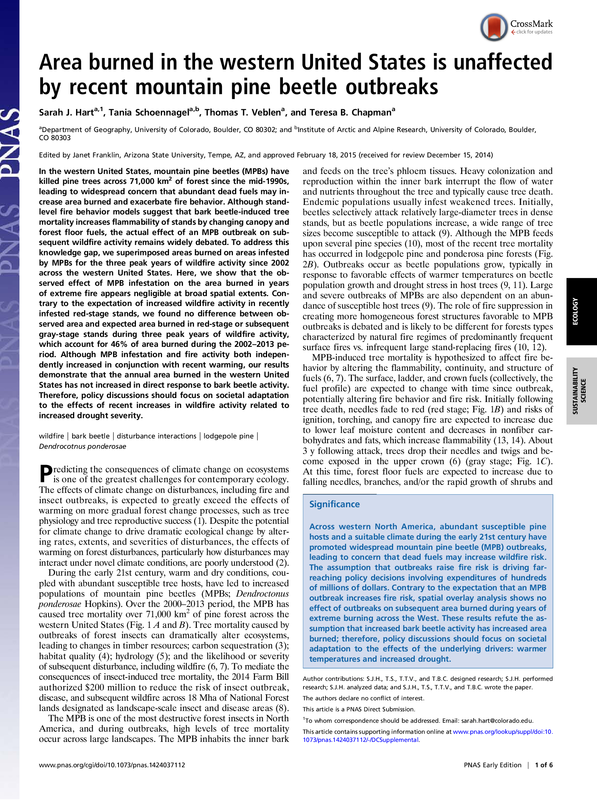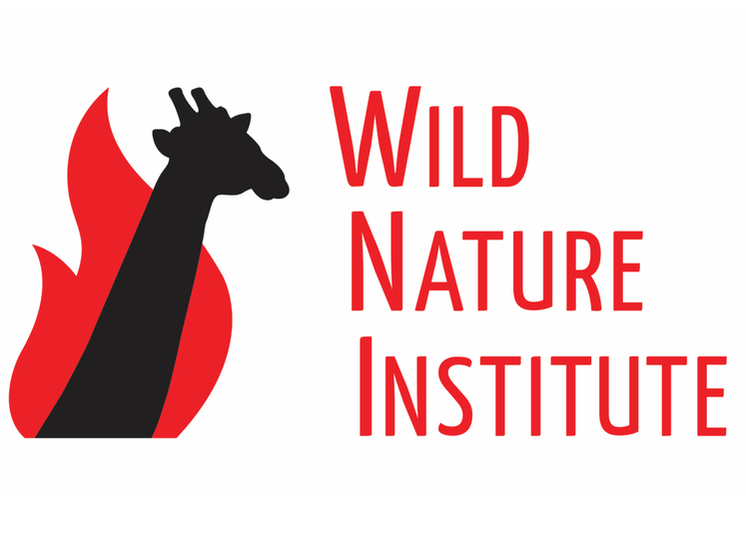|
A new study, published in the Proceedings of the National Academy of Sciences, has determined that the area burned by wildfires is unaffected by recent mountain pine beetle outbreaks.
Contrary to the expectation that a mountain pine beetle outbreak increases fire risk, this study shows no effect of outbreaks on subsequent area burned across the West. This study expands upon our own work in southern California, and work by other scientists, that found pre-fire insect- and drought-caused tree mortality does not influence forest fire severity. These results refute the assumptions that increased bark beetle activity has increased area burned or fire severity. Therefore, policy actions should focus on societal adaptation to the effects of warmer temperatures and increased drought. Wild Nature Institute scientist Derek Lee, who was not part of the PNAS study said,"Logging will not change fire behavior, our forests are naturally resilient, if we would just have the courage to leave them alone, they will self-regulate." In the western United States, mountain pine beetles have killed pine trees across 71,000 square kilometers of forest since the mid-1990s, leading to widespread concern that abundant dead fuels may increase area burned and exacerbate forest fire behavior. The false assumption that outbreaks raise fire risk is driving far reaching policy decisions involving logging that costs U.S. taxpayers hundreds of millions of dollars. Wild Nature Institute scientist Monica Bond, who was not part of the PNAS study said,"Far from being a threat, high-severity fire and insect outbreaks actually provide great benefits to forests and many wildlife species. Logging—including thinning in the name of fire reduction, and salvage logging of burned trees—is actually the greatest threat to our western US forest ecosystems."
0 Comments
Your comment will be posted after it is approved.
Leave a Reply. |
Science News and Updates From the Field from Wild Nature Institute.
All Photos on This Blog are Available as Frame-worthy Prints to Thank Our Generous Donors.
Email Us for Details of this Offer. Archives
July 2024
|
|
Mailing Address:
Wild Nature Institute PO Box 44 Weaverville, NC 28787 Phone: +1 415 763 0348 Email: [email protected] |
|


 RSS Feed
RSS Feed
